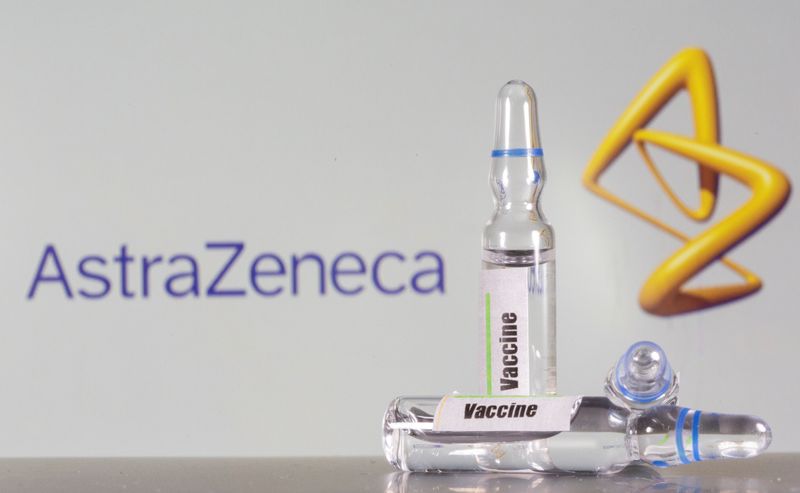WASHINGTON (Reuters) – The U.S. Food and Drug Administration has broadened its investigation of a serious illness in AstraZeneca Plc’s COVID-19 vaccine study and will look at data from earlier trials of similar vaccines developed by the same scientists, three sources familiar with the details told Reuters.
AstraZeneca’s large, late-stage U.S. trial has remained on hold since Sept. 6, after a study participant in Britain fell ill with what was believed to be a rare spinal inflammatory disorder called transverse myelitis.
The widened scope of the FDA probe raises the likelihood of additional delays for what has been one of the most advanced COVID-19 vaccine candidates in development. The requested data was expected to arrive this week, after which the FDA would need time to analyze it, two of the sources said.
Effective vaccines are seen as essential to help end a pandemic that has killed more than one million people worldwide.
The administration of President Donald Trump has pledged $1.2 billion to support development of the AstraZeneca vaccine and secure 300 million doses for the United States. Other leading companies in the U.S. vaccine race include Pfizer Inc, Moderna Inc and Johnson & Johnson.
Regulators in the UK, Brazil, India and South Africa have allowed AstraZeneca to resume its clinical trials there.
The FDA, however, wants to determine whether similar side effects emerged in trials of other vaccines designed by AstraZeneca’s coronavirus vaccine partner, researchers at Oxford University, the sources said. That does not mean the agency believes there were safety issues associated with any of these vaccines, they added.
“It just shows that the FDA is being thorough,” said one of the sources.
Further complicating the situation is that the data requested by FDA is in a different format than what the U.S. regulator requires, two of the sources said.
The FDA declined to comment on discussions involving an experimental product. Oxford did not respond to requests for comment. AstraZeneca, in a statement, said: “We are continuing to work with the FDA to facilitate review of the information needed to make a decision regarding resumption of the US trial.”
VIRAL VECTOR
All of the vaccines it wants to review use a modified adenovirus as vectors to safely deliver genetic material from the target illnesses – flu, Middle East Respiratory Syndrome, and other diseases – into the body to stimulate an immune system response to fight future infection.
While other vaccine developers have used human adenoviruses for such vaccines, the Oxford researchers chose an adenovirus found in chimpanzees. They felt this would reduce the likelihood that an individual’s immune system would attack the vector virus due to prior exposure rather than the intended target.
Reuters reviewed six research papers that detailed safety data of vaccines using the engineered chimpanzee adenovirus called ChAdOx1 for diseases including tuberculosis, prostate cancer and influenza.
In one of those trials, one serious adverse event cited by researchers was deemed unrelated to the vaccine.
The type of review being conducted by the FDA is generally intended to scrutinize raw data for other side effects, the sources said.
The U.S. government’s effort to speed development of a COVID-19 vaccine – and promises by Trump that one could be available prior to the Nov. 3 presidential election – has led to concerns of political interference in the regulatory process at the expense of safety. The FDA has denied this.
AstraZeneca’s vaccine development could also be slowed by a change to its clinical trial protocols to show that it has met pre-determined safety and efficacy standards.
Independent safety monitors will conduct their first review of the vaccine’s safety and effectiveness after 75 trial subjects become infected with COVID-19, up from the original initial review plan after about 40 infections, according to a Reuters review of protocol documents issued in July and amended in mid-September.
The safety monitors could decide to stop the trial if the vaccine proves either highly effective, and therefore should be considered for public use before the trial concludes, or if serious safety problems appear.
“Safety is likely to have been a major reason” for the change, said Thomas Lumley, chair of biostatistics at the University of Auckland who was not involved with the study.
AstraZeneca would not say why it had made the change to its protocol.
(Reporting by Marisa Taylor in Washington and Dan Levine in San Francisco; Additional reporting by Nancy Lapid; Editing by Michele Gershberg and Bill Berkrot)























